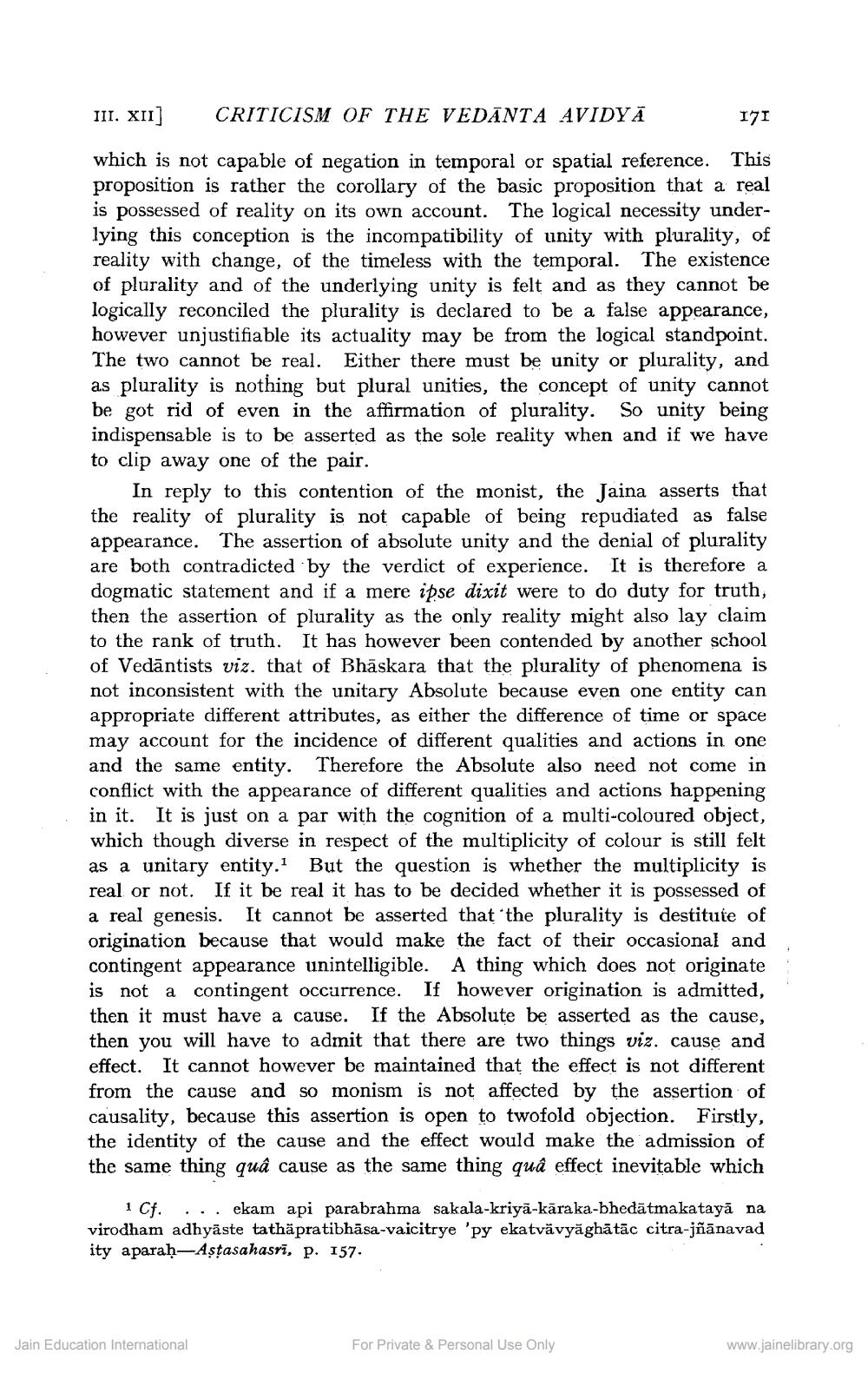________________
III. XII]
CRITICISM OF THE VEDĀNTA AVIDYA
171
which is not capable of negation in temporal or spatial reference. This
ition is rather the corollary of the basic proposition that a real is possessed of reality on its own account. The logical necessity underlying this conception is the incompatibility of unity with plurality, of reality with change, of the timeless with the temporal. The existence of plurality and of the underlying unity is felt and as they cannot be logically reconciled the plurality is declared to be a false appearance, however unjustifiable its actuality may be from the logical standpoint. The two cannot be real. Either there must be unity or plurality, and as plurality is nothing but plural unities, the concept of unity cannot be got rid of even in the affirmation of plurality. So unity being indispensable is to be asserted as the sole reality when and if we have to clip away one of the pair.
In reply to this contention of the monist, the Jaina asserts that the reality of plurality is not capable of being repudiated as false appearance. The assertion of absolute unity and the denial of plurality are both contradicted by the verdict of experience. It is therefore a dogmatic statement and if a mere ipse dixit were to do duty for truth, then the assertion of plurality as the only reality might also lay claim to the rank of truth. It has however been contended by another school of Vedāntists viz. that of Bhāskara that the plurality of phenomena is not inconsistent with the unitary Absolute because even one entity can appropriate different attributes, as either the difference of time or space may account for the incidence of different qualities and actions in one and the same entity. Therefore the Absolute also need not come in conflict with the appearance of different qualities and actions happening in it. It is just on a par with the cognition of a multi-coloured object, which though diverse in respect of the multiplicity of colour is still felt as a unitary entity. But the question is whether the multiplicity is real or not. If it be real it has to be decided whether it is possessed of a real genesis. It cannot be asserted that the plurality is destitute of origination because that would make the fact of their occasional and contingent appearance unintelligible. A thing which does not originate is not a contingent occurrence. If however origination is admitted, then it must have a cause. If the Absolute be asserted as the cause, then you will have to admit that there are two things viz. cause and effect. It cannot however be maintained that the effect is not different from the cause and so monism is not affected by the assertion of causality, because this assertion is open to twofold objection. Firstly, the identity of the cause and the effect would make the admission of the same thing quâ cause as the same thing quâ effect inevitable which
1 Cf...ekam api parabrahma sakala-kriya-kāraka-bhedātmakatayā na virodham adhyāste tathāpratibhāsa-vaicitrye 'py ekatvävyāghātāc citra-jñānavad ity aparaḥ-Astasahasri, p. 157.
Jain Education International
For Private & Personal Use Only
www.jainelibrary.org




